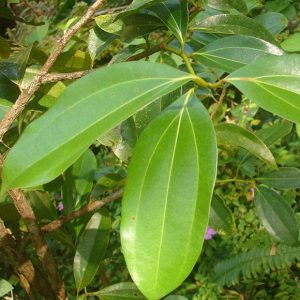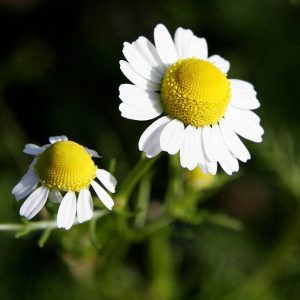- FREE SHIPPING IN CANADA ON ORDERS OF $100 OR MORE AT REGULAR PRICE. SOME EXCEPTIONS APPLY.
Shop
Essential oils
STAR ANISE, Illicium verum
Price range: $13.90 through $73.25
Latin name: Illicium verum
Distilled part: fruit
Origin: Vietnam
Properties: antipruritic, antispasmodic, bronchodilator, digestive, lactogenic, estrogen-like
Indications: breastfeeding, amenorrhea, asthma, colic, inflammatory colitis, poor digestion, menopause, premenstrual syndrome, bronchiolitis, cough, Crohn’s disease, hot flashes
Contraindications: None at physiological doses.
For more information: See the newsletter below, written by Maurice Nicole.
ILLICIUM VERUM (STAR ANISE), THE AMAZONIAN BALM WITH MILES AND A VIRTUES
Star anise (also called madiane) has been cultivated for a very long time. Its sweet leaves were already known in China, 4000 years BC, as masticatory and religious fragrance. Today, it is the fruit called “star anise” that is valued.
It appears in Europe only in the sixteenth century where it will become a rare, very expensive condiment, imported by Russia under these names: cardamom of China, anise of Siberia, fennel of China. The word “Madiane” comes from the Persian Bâdyân which means “anise” because of the smell of the fruit that reminds this plant.
As for the Latin name, it derives from Illicere which means “to seduce”, probably because of the attractive smell that exhales from this tree.
The Essential oil D’star anise is obtained by distilling fruit with an average yield of 2.5%. Its composition is dominated by the presence of trans-anethole (90%), conferring its aroma and distinctive properties. Like that of green anise (Pimpinella Anisum), it exhibits a certain oestrogen-like activity (1) but does not induce proliferative activity and does not increase the risk of breast cancer (2, 3, 4). His action is approaching the protective action of estriol.
The anethole is analgesic and sedative (5, 6). Studies have also shown that it is anti-inflammatory (7), anticoagulant (8, 9) and anti-ulcerative (10). Its inhibitory action of acetylcholinesterase (11) has also been demonstrated, making it an excellent candidate for preventing and treating Alzheimer’s disease. Finally, anethole and the essential oil of star anise have proved to be good antiviral drugs, among others against the herpes virus (12, 13). Their action is exerted by neutralising the viruses outside the cells, preventing them from entering the cells.
Properties
- Oestrogen-like + + +
- Digestive Tonic + + +
- Anti-inflammatory + + +
- Antiviral + + +
- Antispasmodic + + +
- Anticoagulant + +
- Anti-ulcer + +
- Acetylcholinesterase + + inhibitor
Indications
- PMS/menstrual cramps/Menopause
- Dyspepsia, Aerophagia
- Gastroenteritis, colic
- Cough, (asthma, bronchitis)
- Herpes zoster
- Dermatitis
- Muscular-articular inflammations
- Gastro-intestinal ulcer
- Phlebitis
- Alzheimer ‘s
Examples of applications
TOURISTA
- Illicium verum 5 ml
- Myristica Fragrans 2.5 ml
- Mentha x piperita 2.5 ml
- Cinnamomum Casssia 2.5 ml
- Cinnamomum Verum (FE) 2.5 ml
dosage: 5 drops 8 times daily in ½ teaspoon olive oil
ASTHMA
- Illicium Verum 30%
- Ammi Visnaga 5%
- Inula graveolens 5%
- Hyssopus officinalis var. decumbens 20%
- Mentha spicata 20%
- Tanacetum annuum 5%
- Abies Balsamea 15%
dosage, rectal pathway : 250 mg/suppository. A suppository at bedtime. In case of crisis, 1 suppository in 20 minutes.
MENOPAUSE
- Illicium Verum 6ml
- Salvia Sclarea 6ml
- Melaleuca Quinquenervia Cineolifera 6ml
- Lantana Camara Davananonifera 6ml
- Salvia officinalis 6ml
Oral dosage : 5 drops 5 times a day in ½ c. Coffee of olive oil
dermal dosage : 5 drops at forearm level 5 times per day
contraindications: none known.
BIBLIOGRAPHY
- Tabanca N, Khan SI, Barhate E et al (2004) Estrogenic activity of isolated compounds and essential oils of Pimpinella species from Turkey, evaluated using a recombinant yeast screen. Planta Medica 70:728-735
- Miller EC, Swanson AB, Phillips DH et al (1983) Structure-Activity studies of the carcinogenicities in the mouse and rat of some naturally occurring and synthetic alkenylbenzene derivatives related to safrole and estragole. Cancer Research 43:1124-1134
- Newberne PM, Carlton WW, Brown WR (1989) Histopathological evaluation of proliferative liver lesions in rats fed trans-inethos in chronic studies. Food & Chemical Toxicology 27:21-26
- Lubet RA, Steele VE, Eto I et al (1997) Chemopreventive Efficacy of Antiethos triparathion, N-acetyl L-cysteine, miconazole and phenethylisothiocyanate in the DMBA-induced rat mammary cancer model. International Journal of Cancer 72:95-101
- Ghelardini C, Galeotti N, Mazzanti G (2001) Local anaesthetic activity of monoterpenes and phenylpropanes of essential oils. Planta Medica 67:564-566
- Chainy GB, Manna SK, Chaturvedi MM et al (2000) Inethos blocks both early and late cellular responses transduced by tumor necrosis factor: effect on NF-KappaB, AP-1, JNK, MAPKK and apoptosis. Oncogene 19:2943-2950
- Boissier JR, Simon P, Le Bourhis B (1967) experimental psychotropic Action of cis-and trans-isomeric anétholes. Therapy 22:309-323
- Yoshioka M, Tamada TT (2005) aromatic factors of anti-platelet aggregation in fennel oil. Biogenic Amines 19:89-96
Constitutes only a part of the information to be considered in a therapeutic situation and must not be substituted for an informed therapeutic opinion in any case. Hunzaroma INC. is not liable to the user for any decision, action or omission that it makes in connection with the information contained in this bulletin.
This Hunzaroma newsletter was written by Maurice Nicole, ND. A, Institute of Scientific Aromatherapy, inaroma.ca




